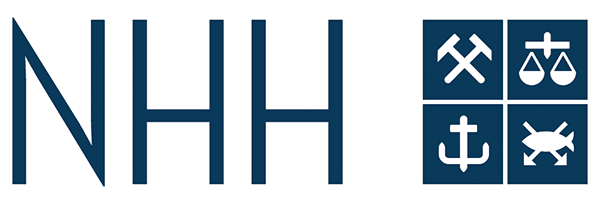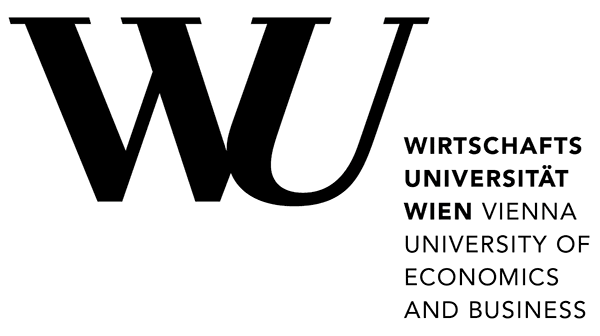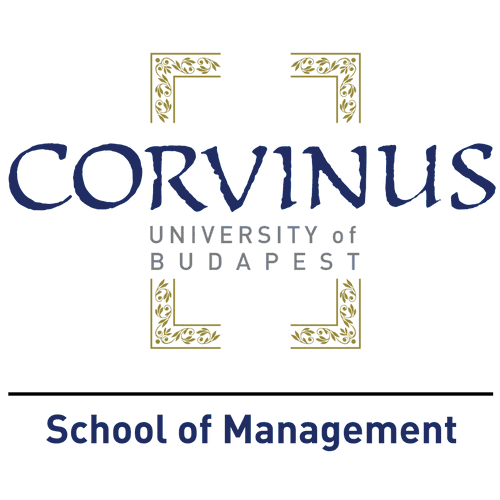
To have real impact, responsible leadership needs to combine knowledge with skills and the adaptive capacity to apply both to complex, multi-stakeholder challenges – as research and initiatives in Austria, Norway and Hungary demonstrate.
Back in 2004, the number of companies from emerging markets – India, Russia, Brazil, China and others – that made into the largest 500 globally totalled 46.
Can you guess how many companies from emerging markets made it into the top 500 by 2014?
a: 71
b: 99
c: 127
The correct answer will be given at the end of the article (*).
How much do you know about emerging markets and globalisation? How much do you think you know?
Putting the knowledge of next-generation leaders in business schools and universities to the test is the motivation behind a CEMS business project supervised at the Vienna University of Economics and Business (WU) in 2017.
Together with their supervisor Prof. Phillip C. Nell, Benoit Decreton and Jan Schmitt, doctoral students at WU Vienna – and CEMS graduates themselves – wanted to know the extent to which real knowledge and bias-distorted prejudices inform our understanding of the challenges and the opportunities of globalisation and doing business in emerging markets.
The project team consisting of eight CEMS students, three supervisors and experts from the Gapminder Foundation, which works towards sustainable global development, constructed a questionnaire to capture insight into future leaders’ assumptions about globalisation and emerging markets.
A total of 17 questions covering topics like life expectation, the flow of people, goods, capital, gender equality, technology and infrastructure in the developing world were put to 1,200 Masters students in Austria – a significant sample size, representing a high percentage of the country’s upcoming decision makers.
The results were stunning.
Uncovering the knowledge gap
“We expected this demographic to achieve between 30% and 50% accuracy in the questionnaire,” says Benoit Decreton. “In fact, they scored an average of 3 out of 17. Not only that, respondents typically chose the option furthest from the correct answer.”
The implications of this knowledge deficit for future business leaders are huge, says Jan Schmitt.
“What this shows is that a generation of upcoming decision makers systemically underestimates development in the emerging world. They have a biased understanding of the potential that is there.”
The results speak to a “gap instinct,” he says – a kind of “us versus them” mentality that is perpetuated by the press and media and the global hegemony of “bad news.”
“And this is bad news for business,” says Benoit. “Especially in an age of populism, where we see this backlash against globalization, a lot more needs to be done to correct misconceptions about entire societies. The implications for business in terms of missed opportunities are too big to ignore.”
Solving this, says Jan, means an increased focus on fact-based knowledge. And encouraging young leaders still within the education cycle to explore opportunities overseas, for example via internships.
There’s also an imperative at the individual level to build self-reflection habits into our daily lives, says Benoit.
“It’s easy to read the press and think you know a lot. But our survey demonstrates quite clearly that you need to proactively challenge your knowledge. Young people need to ask themselves how much they really know.”
Of course, tackling populism, protectionism and polarisation doesn’t just require knowledge.
Future leaders need to develop the kinds of strategic thinking, decision-making, negotiating and communications skills to navigate complexity, manage challenges and exploit opportunities that deliver sustainable impact.
So says Therese Jebsen of the Rafto Foundation for Human Rights.
From knowledge to skills
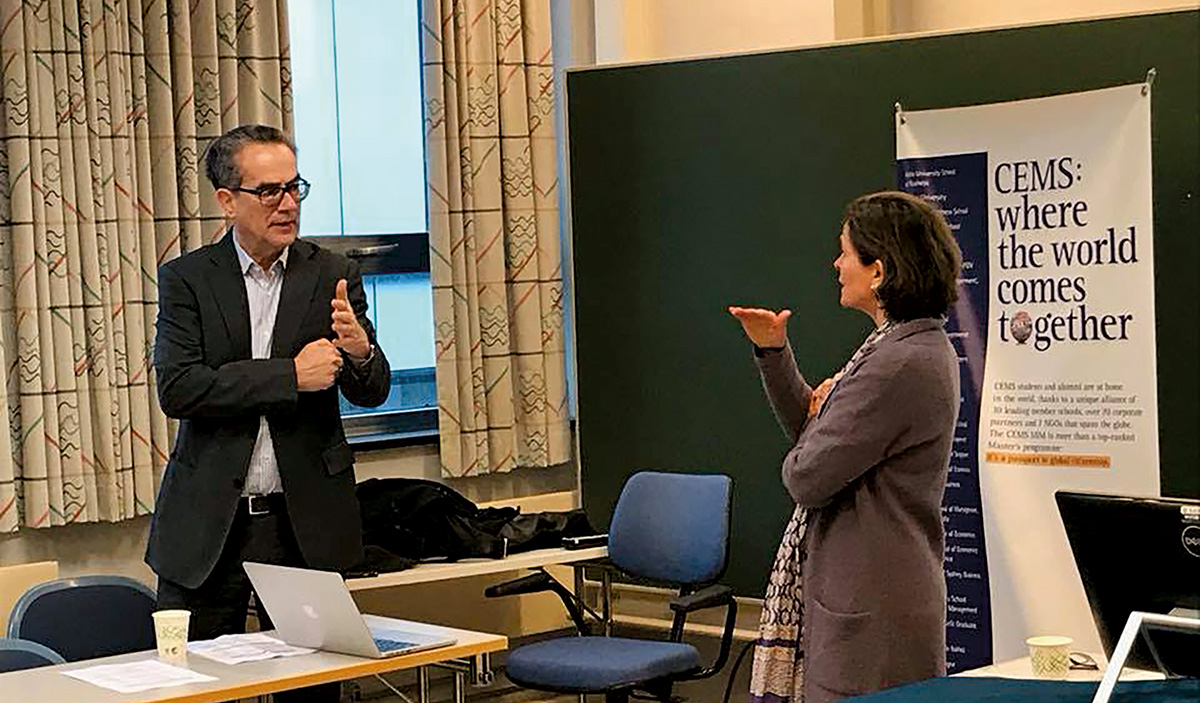
The Rafto Foundation, in collaboration with the Institute for Human Rights and Business, has delivered a case-based skills seminar to CEMS students at NHH, the Norwegian School of Economics, over the course of the last two semesters. The seminar is based on a number of real-world cases, exposing students to the complexities of protecting human rights in the volatile context of international business.
And it’s a very interactive experience, says Therese.
“The aim is to give students a hands-on opportunity to discuss and work with the kinds of ethical dilemmas that they will encounter in the real world, with things like complex supply chains. We look at the skills they need to develop to translate and apply guiding principles on human rights and overcome the tensions that leaders genuinely face every day.”
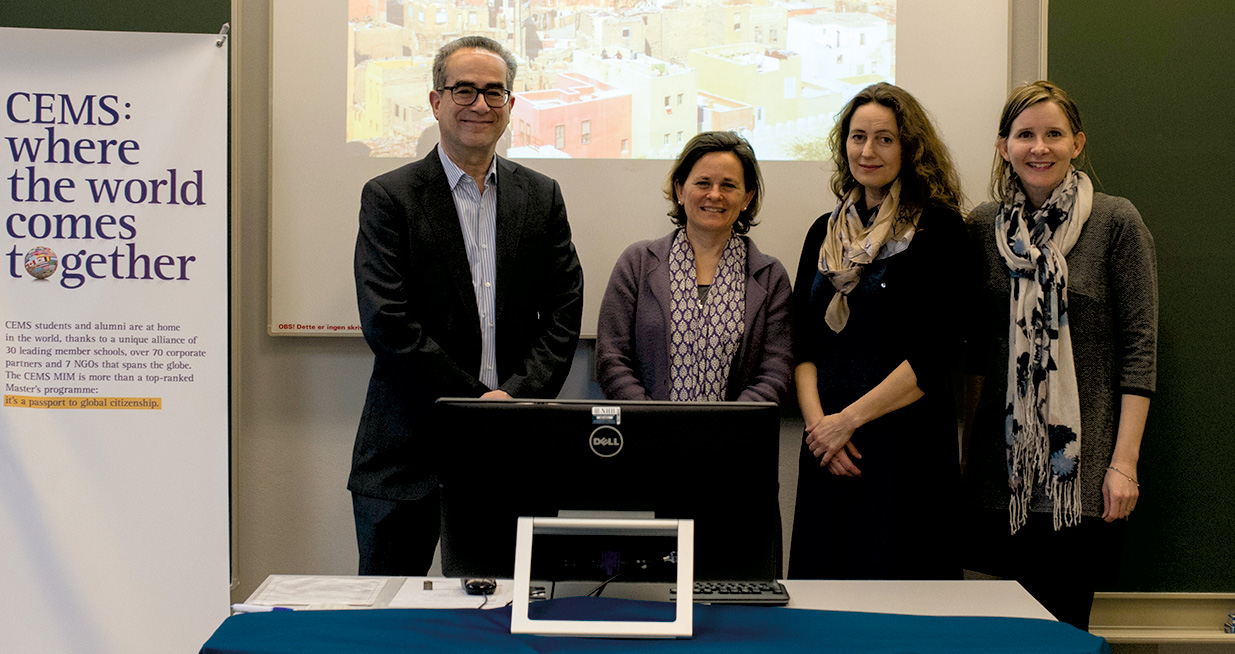
The exposure to real stakeholders and real-life problems, and the challenge to debate, defend and negotiate solutions drive a change in mind-set that according to one student brought home “the need to feel individual responsibility to tackle issues that looked very far away before the seminar, but now feel very close to home.”
CEMS Academic Director at NHH, Professor Jan Haaland, sees great value in direct collaboration with NGOs and other stakeholders to share real-world expertise and insight from the “deliverers themselves.”
“Collaborating with NGOs and businesses works well within the broader structure of the CEMS MIM and our Vision 2025 to prepare “responsible leaders contributing to a more open, sustainable and inclusive world”. Elements like this skills seminar are very important in bringing in a human dimension that goes beyond the academic.”
Applying it all

Working with NGOs and business to apply knowledge and is exactly what Corvinus Business School is doing in Hungary.
Two projects in the last academic year have brought CEMS students there together with local NGOs to design, deliver and implement real-world sustainable business models.
And the takeaways have been “eye-opening” says Zsuzsanna Ihász.
Zsuzsanna is part of a four-strong team of CEMS students who have collaborated with the social entrepreneurship fellowship, Ashoka, and McKinsey to deliver a scalable business development strategy to Hungarian NGO, GoHealthy – an NGO promoting an alternative, results-driven teaching methodology for kindergarten children.
The team has delivered a business plan built on a scalable training model, methodology resources and community building that could see GoHealthy extend its reach to 50+ kindergartens in Hungary, and finance its own operations without support from donors.
Key to the success of the project, says Zsuzsanna, was “learning to adapt all the way, while keeping the goals in sight at all times.”
This capacity to pivot and to apply what is learnt in the classroom to real-life scenarios is also a significant learning outcome for Florian Lorenz, part of the second CEMS team who collaborated with Szimbiózis, an NGO working to improve the lives of people with disabilities.
Florian’s team designed a strategy to empower the NGO to offer team-building activities to 600+ local businesses – a unique selling proposition that has the potential to transform funding for the NGO’s operations.
“Managing different stakeholders with different needs and interests and working together towards the shared goal of positive impact meant really taking a step away from the lecture hall. In real life you have to communicate simply and effectively with diverse stakeholders to find the solutions that work for everyone.”
Both teams agree that making the transition from theory to practice has been a revelation.
Building knowledge and skills in the academic context form an “invaluable framework” says Lilla Beregszászi of the Szimbiózis team. And then taking that framework into the real world setting, exploring the “interesting symbioses that exist between stakeholders” calls for “a personal responsibility and a commitment to apply our skills,” says Donát Rigó of the GoHealthy team.
“These experiences are a reminder of the responsibility we carry to society as a whole. They are nothing short of inspiring.”
*In 2014, 127 companies from emerging markets had entered the world’s 500 largest companies. Research published by Fortune Magazine estimates that by 2025 some 47% of the Fortune 500 will be headquartered in the emerging world.
